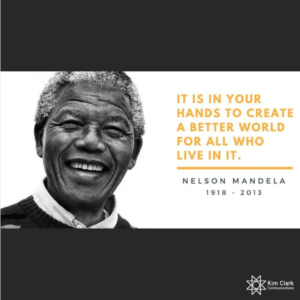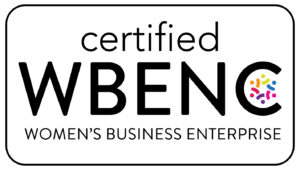A Note from Kim
64% of us have experienced bias within the last year. 83% of us characterize the bias as subtle or covert — which is called a microaggression.
Here’s a more official definition of microaggressions: “Brief, everyday exchanges that send denigrating messages to certain individuals because of their group membership.” -Derald Wing Sue, Columbia University
When microaggressions happen, we may start to display absenteeism or poor performance. Our relationships and loyalty might start to suffer. We may experience anxiety or depression. And we may not apply to roles or seek promotions because we don’t fit into the represented majority.
Microaggressions are a big problem, obviously. They leave people feeling unseen, unheard, unimportant, and unaccepted. This is especially damaging when an executive or leader does a speech in front of an audience who has different life experiences than the speaker (see Janet’s video below).
So what do we, as communicators, do? Start by recognizing microaggressions:
How do microaggressions impact us as individuals, collectively within our culture, and how we role model and lead? Is the microaggression due to conscious or unconscious bias?
Then, reset: In what ways does my privilege affect my communications? How do we apologize if we’re the ones that said the microaggression? Which social agreements can we set, both internally and externally?
Finally, represent: How can we create visbililty, opportunity, influence and deference for people who have historically been invisible and silenced? How can we center the impacted and yield our platforms to their voices?
And the thing that ties this all together….DEPTH.
If that seems like a lot, don’t worry: Janet Stovall and I wrote a whole book about it (you can pre-order it here).
Last week was National Nelson Mandela day in the US. It’s only fitting to share one of his most famous quotes with you as it relates to creating change, “It’s in your hands now.”
This is where we are in the US right now. Unconscious bias is real. Conscious communications will move us forward. And taking responsibility for our allyship is our job as communicators.
It’s in your hands,
Kim
How to avoid being performative in executive and leadership speeches
Speeches by executives and leaders are part of many communicators’ roles and it takes DEI communication skills to connect with audiences who may have different life experiences and identities as the leaders. Janet is the former executive speechwriter for the prior CEO of UPS. In this video, she talks about how not to be performative in speeches, how to make that connection, and how to center on the audience’s experiences.
Taking Notes
Inclusive Communications Tip
Representation matters
Visual representation is a real problem. Communicators and content creators can create (that’s a lot of c’s at once!) unintentional harm by reinforcing stereotypes, tokenizing and leaving entire communities out of visuals, illustrations and graphics. Some of us are at the mercy of brand and marketing’s choice of stock image libraries and if so, please schedule time to sit with them this week and share this latest effort by Getty to increase accurate and robust representation. I’ll let Shereen Daniels from the UK take it from here based on her LinkedIn post:
Getty opens access to 30,000 images of Black diaspora in UK and US. Photos dating back to 1800s made free to allow telling of Black history stories beyond enslavement and colonization. The Black History & Culture Collection includes more than 20 categories of images including politics, hair, education, female empowerment and LGBTQ+. It’s about time.
Upcoming Events
Webinar Wednesday on July 27th 1-2 pm PST:
Live webinar with my teacher and mentor, Rev. Dr. Deborah L. Johnson. We’ll talk about key mistakes we’re making in DEI and how to uplevel our communications so that we take the opportunity that pain has been pushing so we can get pulled by vision. Register in advance for this meeting. After registering, you will receive a confirmation email containing information about joining the meeting.
Save the date: LinkedIn Live on August 24th 9-10 am PST
Hosted by Staffbase, Kim will be talking about the relationship between inclusive language and employee mental health and wellness. Stay tuned for more details!
Save the date: Free Webinar on August 24th 2:30-3:30 pm PST
The practice of DEI: Kim will be partnering with a DEI practitioner focused on strategy and assessment to offer the marketing and communications lens to the practice of DEI. Stay tuned for more details!
Book 15 Minutes with Kim to talk about your DEI Communications challenges
Pre-Order The Conscious Communicator:
The fine art of not saying stupid sh*t.
As you know, we are teaming up to co-author a book called The Conscious Communicator: The fine art of not saying stupid sh*t. It’s now available for pre-order.
It’s a guide for organizational communicators to help their communications have more DEPTH to avoid being performative and generating employee and social media backlash. DEPTH is a 5-step model to ensure messaging and content are meaningfully and intentionally created through a diversity, equity, and inclusion (DEI) lens.
We bundle your pre-order of our book with a free live Zoom session with us on the last Thursday of each month.
Follow Kim on Social
Follow Janet on Social
Share This Week’s Blog Post to Your Socials
How to Subscribe
Fill out the form below to receive The Conscious Communicator’s Weekly Newsletter to your inbox!



